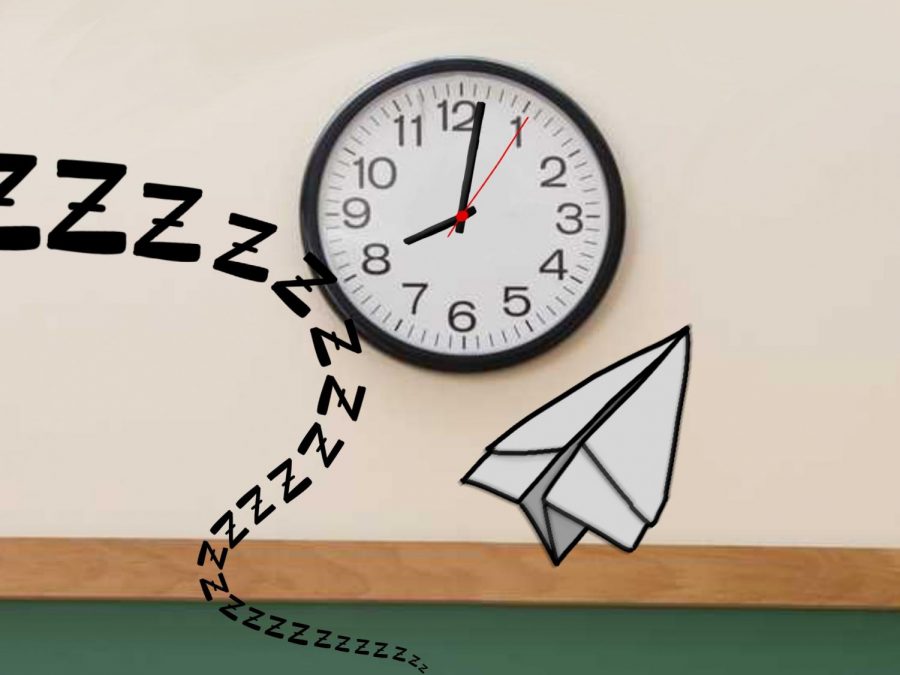Later Starts, Brighter Futures
Lack of sleep is common amongst high school students, causing long-term effects on their mental health and endangering them. Schools should push back their start times to alleviate these effects.
February 23, 2022
On average, teenagers require about nine hours of sleep per night. But with heavy classes, after-school clubs, and extracurricular activities further putting off homework, students find it difficult to choose between their grades and fulfilling these hours. By cultivating an enriching education while providing for the well-being of students, later school start times are inherently superior to early ones.
Early school starting times damage the development and health of students while impacting academic performance. According to a survey conducted by the Centers for Disease Control, 73% of U.S. high school students get less than eight hours of sleep on school nights; similarly, a staggering 43% reported as few as six hours or less. With the majority of students not receiving an adequate amount of sleep due to their life revolving around the school schedule, they are actively sacrificing their health at the cost of an education.
Consistent sleep deprivation has been found to have long-term effects on attention, control of mood, and behavior. This can carry on into a student’s academic life, as it risks the development of impaired cognitive function and lower performance in academics and athletics.
Not only is the health of students impacted by earlier start times, but the lives of other people are jeopardized as a result of these early start times. According to statistics provided by the AAA Foundation for Traffic Safety Standards, about 20% of all crash fatalities involve a driver impaired by drowsiness or fatigue. Since early morning school start times contribute to the amount of tired and inattentive student drivers, the likelihood of crashes stemming from them increases.
In order to ensure the best possible future for students, sufficient sleep is a crucial factor. Given that schools put so much emphasis on the importance of the sleep and health of students, it is necessary to move toward later school start times. After all, these adolescents are going to be the future of society one day. Later school start times are essential in providing proper support for students and, ultimately, promoting a safer today and an even brighter tomorrow.


